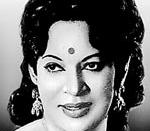In Nectar In A Sieve, Kamala Markandaya emphasizes the changes that every character must adapt to. While in some cases characters try to avoid change or feel pity towards themselves, only those who accept and adjust to change persevere. By showing the various choices that one makes, and their outcomes, Markandaya expresses her opinion that since change is inevitable, in order to survive one must have hope and be optimistic about the future.
There are several situations in Nectar in a Sieve in which characters must deal with change, after which they learn that it is inevitable and must accept it. At first, Rukmani insists on disregarding the tannery, and is reluctant to acknowledge their influence in her life, "They may live in our midst but I can never accept them," (p. 32). Although she wants her life to return to normal, as it was before the intruders came, this is impossible; she must learn to share her land and culture with those who change it in "a myriad ways."
Ruku does not find happiness until she learns to accept the changes that the tannery brings to her village, some of which she finds beneficial. Nathan, whose biggest desire is to pass his land on to his children, is faced with overcoming the disappointment of his sons' longing to leave their village. His biggest obstacle is to accept the fate of his sons, which he is able do when he realizes that the reason for the better life his family is leading is the wages his sons bring home. Ammu, Ruku and Nathan's daughter-in-law, is not accepting of the sudden change that life brought her. She must support her family alone after Murugan left his wife and children in hopes of a better life. As several characters undergo change,


